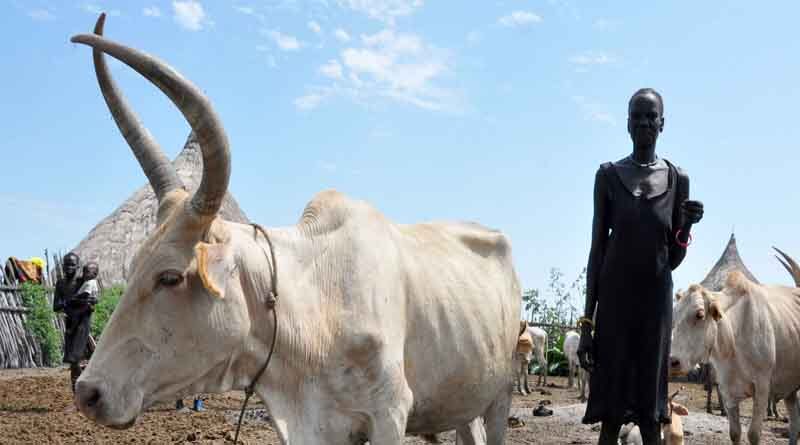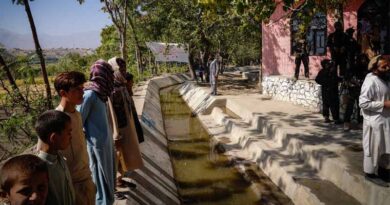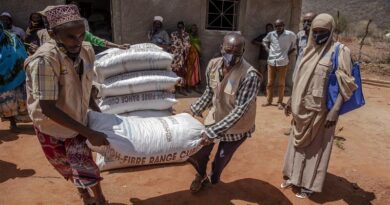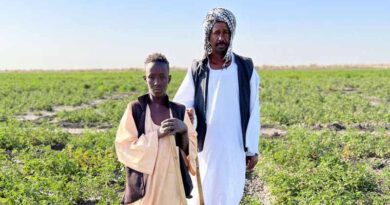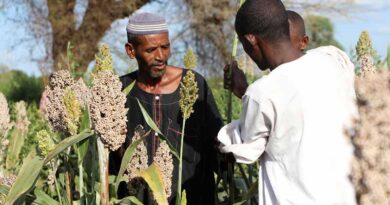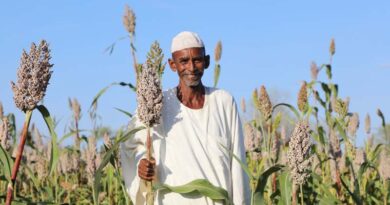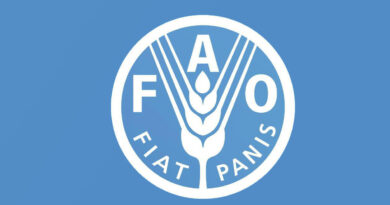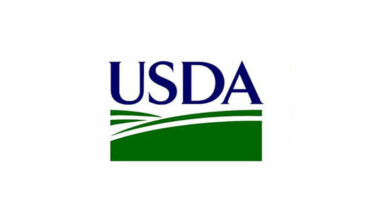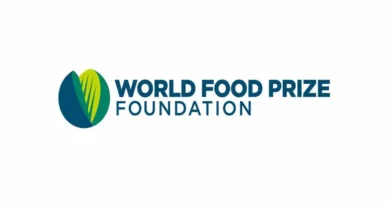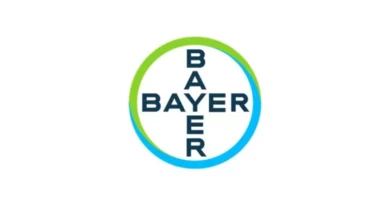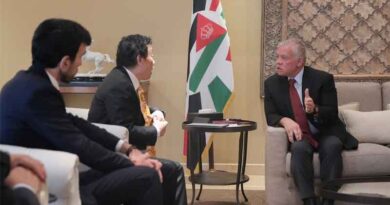The Sudan: FAO scales up response to soaring acute food insecurity exacerbated by potential impacts of the war in Ukraine
31 May 2022, Rome: FAO welcomes a $12 million contribution from the UN Central Emergency Response Fund, more funds are urgently needed to avert hunger crisis
The Food and Agriculture Organization of the United Nations (FAO) is intensifying efforts to address soaring acute food insecurity in the Sudan which is driven by the combined impacts of armed conflict, drought, COVID-19, low production of key staple crops related to infestation by pests and diseases, and economic turmoil.
According to the FAO Humanitarian Response Plan 2022 for the Sudan, 10.9 million people or 30 percent of Sudanese are expected to need life‑sustaining support in 2022, the highest number in the past decade.
In response to the dire food security situation – a situation which risks being further exacerbated by the cascading effects of the Ukraine conflict, FAO has launched a new project funded by the United Nations Central Emergency Response Fund (CERF), which aims to restore the food security and nutrition of affected farming and pastoral communities in the Sudan through provision of emergency agriculture and livestock supplies.
This vital $12 million contribution from CERF – the largest single allocation to FAO by CERF to date – will support urgent efforts to build the resilience of resource-poor farmers and pastoralists in the Sudan’s 14 most severely affected counties.
“This generous contribution from CERF means that FAO can urgently provide essential agricultural inputs to vulnerable farming households before the main agriculture season starts in June. It will ensure that they can produce enough food to meet their needs for the months to come,” said Babagana Ahmadu, FAO Representative to the Sudan.
Responding to crises and building resilience
The project will target 180 000 households or 900 000 people among the most vulnerable farming and pastoralist communities including internally displaced people, returnees, refugees and resident households. With two‑thirds of the population living in the Sudan’s rural areas, providing smallholder farmers with agricultural support is essential to the humanitarian response.
The project covers both agricultural and livestock assistance, which aims at rapidly reducing dependence on emergency food assistance and provides a basis for medium- and longer-term recovery. This assistance includes the provision of certified crop, legume and vegetable seeds, donkey ploughs and hand tools, veterinary vaccines and drugs, animal protein-rich concentrate feed, and mineral licks; as well as donkey carts and productive animals. It also includes provision of cash and the rehabilitation of community productive assets such as small-scale water infrastructure, hafirs, pasture and other.
The situation looks grim for millions as the war in Ukraine is causing further spikes in food prices, as the Sudan is dependent on wheat imports from the Black Sea region. Interruption to the flow of grain into the Sudan will increase prices and make it more difficult to import wheat. Currently, local prices of wheat are at over $550 per tonne – an increase of 180 percent compared with the same period in 2021.
Furthermore, the current high prices for fertilizers on global markets will inevitably weigh in Sudan’s ability to import, potentially jeopardising the country’s ongoing and upcoming crops.
For these reasons, this CERF allocation is timely and vital. In addition, FAO urgently needs another $35 million to ensure adequate support for two million vulnerable farming and pastoral households to produce their own food, keep their livestock alive and productive, strengthening their resilience.
Also Read: SWAL introduces Wuxal Macromix to combat heat stress on Wheat

